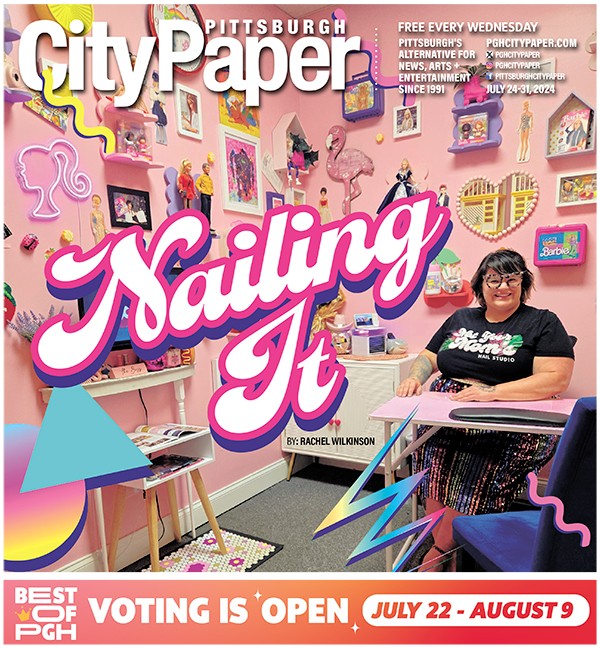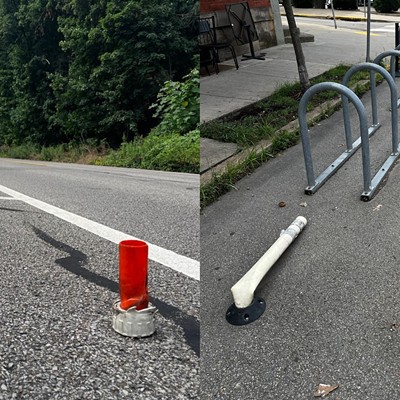The University of Pittsburgh's recent day-long event marking the centenary of Jonas Salk reminded us why there were few 20th-century American heroes bigger than the man who discovered the polio vaccine.
Yet the Jonas Salk Centenary Symposium on Sustainability, organized by Pitt's Graduate School of Public Health, focused on one of Salk's later concerns: how humankind might survive itself.
In books like 1973's Survival of the Wisest, Salk tackled the challenge of human population growth on a finite planet. "Man has evolved so successfully that he is now to be tested for his capacity to ‘invent' appropriate means to limit the harmful or lethal excess of which he is capable," he wrote. Now, all humans must acquire "the wisdom to know the difference between the constructive and the uselessly destructive and to be able to act accordingly."
World population in 1973 was about 4 billion; it's now 7.2 billion. And problems like deforestation and overfishing have only worsened — not to mention the multifaceted threat of climate change, which wasn't even on Salk's radar.
At Pitt, the distinguished speakers included Salk's son, Peter Salk; economist and U.N. sustainability official Jeffrey Sachs; and former White House green-jobs adviser Van Jones. They seconded and updated Salk's concerns, and proposed how we might answer them.
But wait: How could Salk have been our greatest science hero ever, and yet (along with many other voices sounding such alarms) go effectively unheeded about problems threatening not the health of a few, but the very foundations of civilization? And why aren't warnings from today's scientists received any better?
Partly, of course, it's because polio scared the crap out of people. It was a clear, present and personal threat, whereas climate change — like overpopulation and other sustainability issues — strikes many Americans as slow-moving or theoretical (even though its droughts, superstorms and rising oceans already plague us). Maybe that's why Bernard Goldstein, former dean of Pitt's public-health school, announced that he'd had to explain the importance of sustainability to a student who asked why this Salk symposium wasn't about Ebola instead.
Moreover, climate is an unprecedented challenge. Halting climate change requires not only reining in the politically omnipotent fossil-fuel industry, but retooling everything we use fossil fuels for — and basically, that's everything.
But there's something else going on, too: storytelling. The story of the Salk vaccine fits our culture's favored narrative about plucky humans overcoming obstacles with scientific know-how and concentrated effort. Stories about not doing stuff — not overrunning the world with humans, not burning fossil fuel, not growing a planet-devouring economy just to grow it — don't capture most people's imaginations in the same way.
Our preferred narrative involves technology's supposed triumph. Perhaps that's one reason why "geo-engineering" proposals to combat climate change — ideas like blowing tons of pollution into the stratosphere to reflect sunlight back into space — can strike many of us as plainly bonkers ... yet still seem more likely than us adopting the eminently sane approach of actually reducing greenhouse emissions.
"We can't even imagine a green economy ... because we've been bludgeoned to death over the past six years by people who were terrified by this vision," said Crossfire host Van Jones, referring in particular to climate-deniers in the media, in Washington and at right-wing think tanks.
Arguments like Salk's, and Sachs' — "Time is running out on a safe planet" — have appealed to our reason and sense of stewardship for decades But they haven't sufficed. (President Obama's new carbon-cutting deal with China is promising, but nonbinding.) The "green-collar economy" that Jones touted can fight both poverty and pollution by creating jobs in renewable energy and energy efficiency, but it often faces crippling political opposition. Such challenges, too, suggest we need help envisioning a sustainable future.
In her provocative new book, This Changes Everything, journalist Naomi Klein argues that a safe climate is incompatible with growth-at-all-costs global capitalism. While Klein acknowledges that policymakers must get aboard, she is most hopeful about "Blockadia," a loose global network of localized, grassroots resistance movements to everything from Canadian tar-sands mining to China's unbreathable air. Blockadia, she writes, is about love of place, love of home. If this is a story we can use, we need to write more chapters before it's too late.













